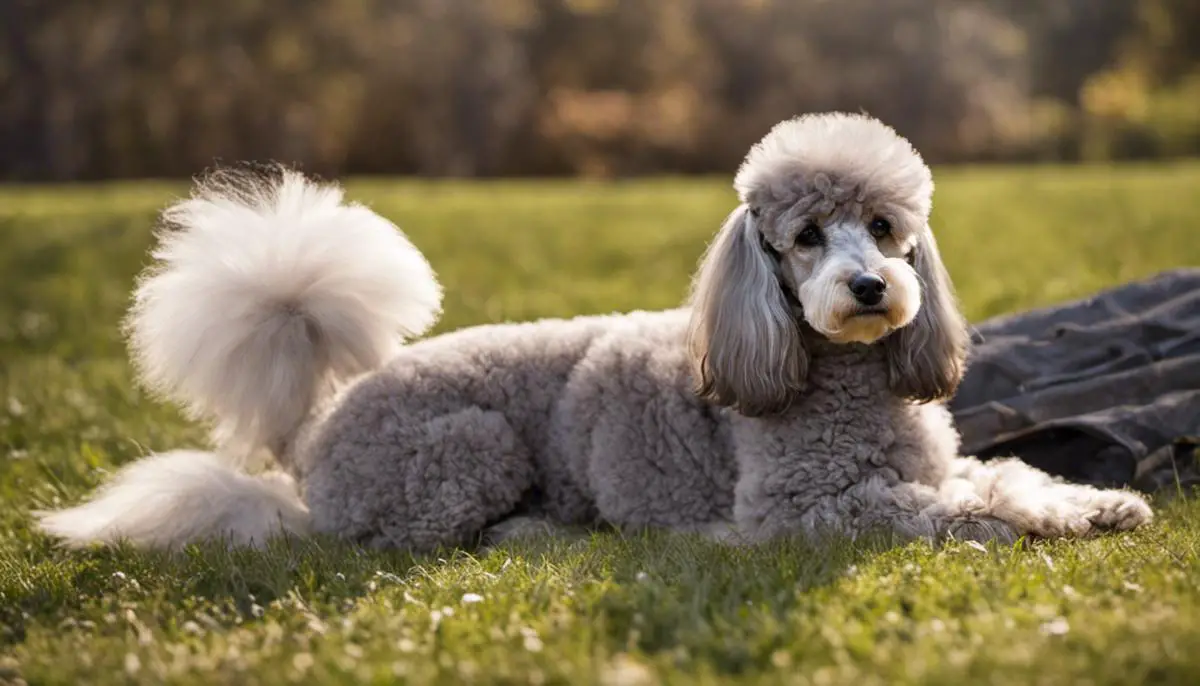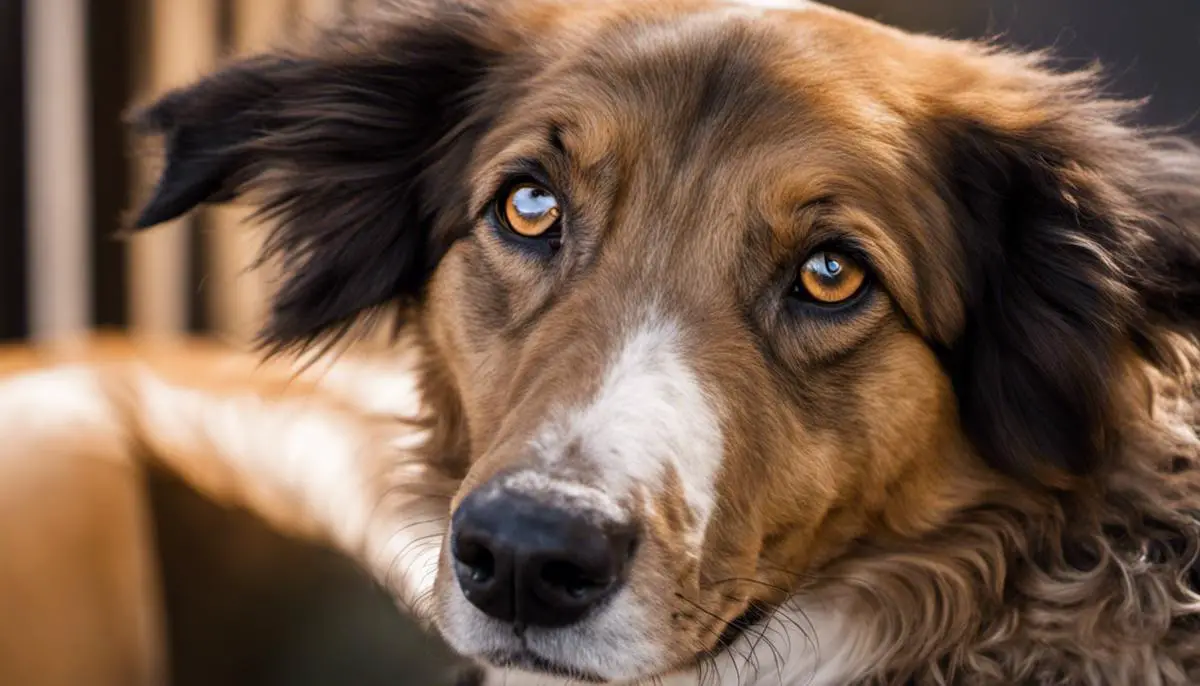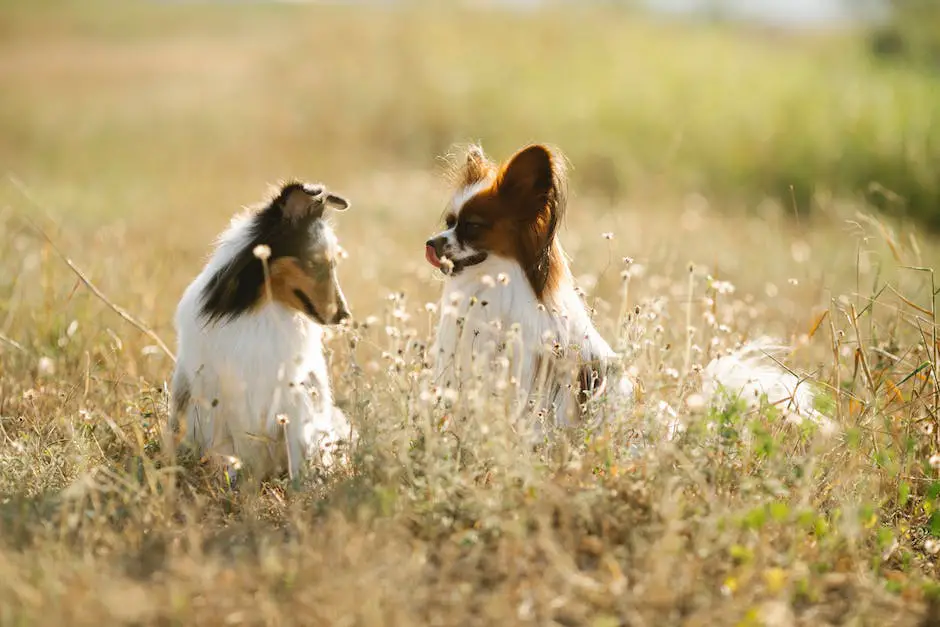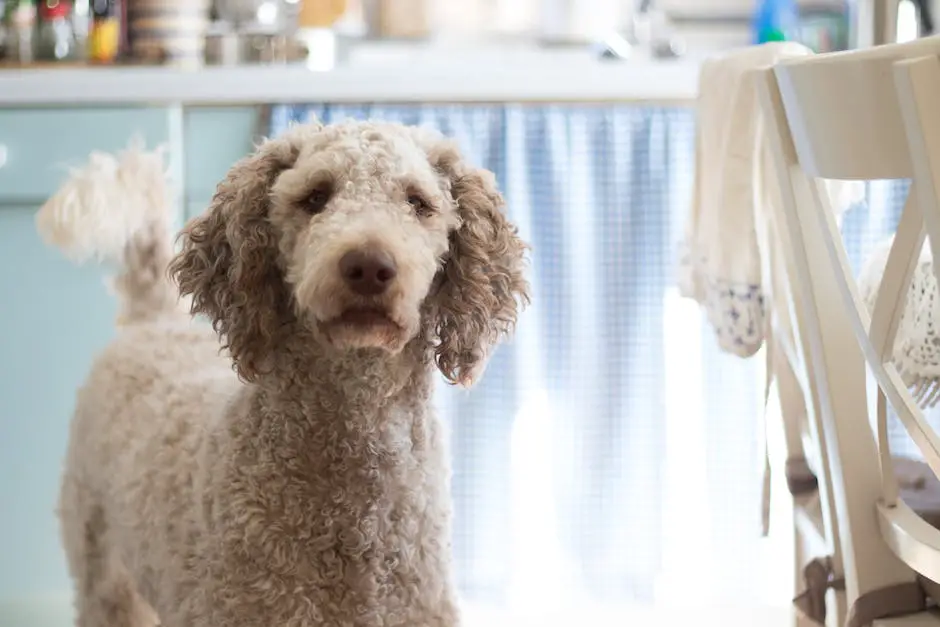The CotonPoo: A Coton De Tulear And Poodle Mix
There’s a broad world of comfort, love, and companionship that comes with owning a pet—the kind that is snugly nestled within the fluffy confines of the Coton de Tulear and Poodle mix breed. This breed, borne out of the commendable blend of the playful Coton de Tulear and the intelligent Poodle, promises a unique combination of endearing qualities that make them such a fantastic choice for a pet. This document will comprehensively guide you through understanding each breed’s standalone characteristics before delving into what makes the fusion so special. From their origins, physical attributes, behavior, and peculiar health issues to how to take care of them effectively, every detail necessary to ensure a fulfilling pet ownership experience will be examined.
Understanding the breed: Coton de Tulear
Understanding the Breed: Coton de Tulear
Originating from Madagascar, the Coton de Tulear is a small dog often referred to as a “toy” breed. This breed earned its name from its unique, cotton-like hair, and the city of Tulear in Madagascar. Bred as companion animals, Cotons have warm and friendly personalities and thrive when they can spend quality materials.
Concerning physical characteristics, the Coton de Tulear has a body that is slightly longer than it is tall, giving it a somewhat elongated, supportive stature. It possesses large, expressive eyes, often reflecting its enthusiastic and cheery disposition. Its standout feature is its long, fluffy, cotton-like coat that often requires regular grooming to maintain its soft, silky texture.
Behaviorally, the Coton de Tulear is known for its lively, playful, and friendly nature. This breed is incredibly loyal to its family members and, despite its small size, can be very protective. Cotons have a high level of intelligence, which makes them quite receptive to training. However, they are also known for being stubborn, which may occasionally pose challenges during training sessions.
Like other purebred dogs, the Coton de Tulear has a predisposition to specific health issues. Some of the common health problems that may affect this breed include Hip Dysplasia, Patellar Luxation, Progressive Retinal Atrophy (PRA), and Allergies. However, not all Cotons will get any or all of these diseases, but it’s crucial to be aware if you’re considering this breed.
Introduction to the Coton de Tulear and Poodle Mix
The hybrid of a Coton de Tulear and Poodle is commonly known as a ‘Cotondoodle’. An impressive blend of both breeds, this mix takes the low-shedding characteristic from the Poodle and combines it with the friendly and playful nature of the Coton for a high-spirited pet with minimal clean-up.
A Cotondoodle’s physical attributes can range greatly due to its mixed lineage. Typically, their coat becomes a harmonious mix of Poodle’s hypoallergenic, curly fur and Coton’s soft, downy fluff. Coat color can be greatly diverse, though it entirely depends on the color genetics of the parents.
As for their character, Cotondoodles are amiable, intelligent, and affectionate. They cherish the companionship of humans while being agreeable with other pets and children. Due to their inherent desire for exploration and their love of play, they are well-suited for energetic households.
While the crossbreed is generally healthier, owners should be vigilant about the potential health issues that exist in both breeds. Regular veterinary visits and maintaining a balanced lifestyle are paramount for a healthy Cotondoodle.
Summarizing, the Coton de Tulear and Poodle hybrid can be an appealing pet choice for families due to its friendly disposition, intellect, and relatively easy upkeep.

Photo by serhiyhipskyy on Unsplash
Understanding the breed: Poodle
Getting to Know the Poodle
Poodles are internationally cherished for their brilliant minds and noble demeanor. This breed consists of different sizes, namely standard, miniature, and toy, thus offering potential dog owners a significant selection suitable for their unique lifestyle and accommodation.
A standout trait in this breed is their distinct, tight curls or corded coat. They boast a spectrum of coat colors including black, blue, white, gray, silver, apricot, and even some less common colors like a fiery red or a multi-colored coat.
These highly intelligent, trainable canines also exhibit a jovial, outgoing attitude. With their innate agility and obedience, Poodles often outshine others in canine sporting events and competitions. They enjoy socializing, and generally coexist harmoniously with humans and other pets.
Despite the countless positive traits, potential Poodle owners should also note the health issues common in this breed. They are prone to genetic conditions like hip dysplasia, eye disorders, and variety of skin diseases, along with recurring ear infections due to the hair in their ears which can harbor moisture, bacteria, and yeast.
Mixing Coton de Tulear and Poodle
When it comes to crossbreeding, the poodle is often selected for its desirable traits. The breed’s intelligence, good nature, and hypoallergenic fur make them an excellent choice for creating “designer dogs”. The mixing of a poodle with a Coton de Tulear results in a mixed breed affectionately referred to as a Poo-Ton.
Coton de Tulear, like the poodle, is known for its affable nature and intelligence. Its fluffy, cotton-like coat provides the inspiration for its name. The breed is regarded for being sociable, happy, and adaptable, with a propensity for being great family pets.
The Coton Poodle mixture will typically result in a dog with a combination of these qualities. Generally, a Poo-ton will have a fluffy, hypoallergenic coat, coupled with the combined intelligence and sociability of both parent breeds. Potential health issues for a Poo-Ton may include ear infections, hip dysplasia, and eye disorders, which are common in both Poodles and Coton de Tulears.
Keeping a Poo-Ton healthy includes regular veterinary checkups, proper grooming, balanced diet, and ample exercise. Their social and cheerful nature also means they thrive in a loving and inclusive family environment.
To fully appreciate each individual dog’s unique personality and life experiences, it’s crucial to understand the broader characteristics of their breed. For those considering welcoming a Poo-Ton into their home – a charming mix of Coton de Tulear and Poodle – understanding the traits, behaviors, and care requirements of these specific breeds can provide a solid foundation for responsible ownership.

Characteristics of Coton de Tulear and Poodle mix
Physical Characteristics
The crossbreed known as a Poo-Ton, derived from combining the Coton de Tulear and Poodle breeds, offers a diverse range of traits inherited from both parents. Depending on whether the Poodle parent is of Toy, Miniature, or Standard variety, a Poo-Ton’s size can vary from small to medium. They typically weigh between 9 and 17 pounds, and could be as tall as 15 inches.
The Poo-Ton’s coat mirrors the distinct fur of its parents, possibly taking on the Poodle’s curly texture or the Coton de Tulear’s fluffy appearance — or sometimes, a striking blend of both. Coat colors can range from white, black, red, gray, or a mix of these shades, adding to their unique appeal.
Behavior
Both the Coton de Tulear and Poodle breeds are known for their friendly and outgoing nature. These dogs are known to have a cheerful disposition and are typically very sociable. They enjoy being the center of attention and are incredibly loyal to their families. Poo-tons inherit these traits, making them excellent companions for families or individuals.
Intelligence
The Poodle is ranked as one of the most intelligent breeds, and the Coton de Tulear, while not as highly ranked, is still a clever breed. A mix of the two can therefore be expected to be highly intelligent, with a quick learning curve and an ability to pick up commands and tricks fairly quickly. This intelligence makes them very trainable, but it also means they need mental stimulation to prevent boredom.
Physical Health and Lifespan
The mix of Coton de Tulear and Poodle often results in a healthy and vigorous breed, especially considering the health testing standards for both breeds. Typical life expectancy ranges from 12 to 16 years. However, it’s important to note that like all mixed breeds, Poo-tons can be prone to the health conditions that typically affect their parent breeds, including Hip Dysplasia, Patellar Luxation, Progressive Retinal Atrophy (PRA), and Addison’s Disease.
Hypoallergenic Qualities
Both the Coton de Tulear and the Poodle are known for their hypoallergenic coats, meaning they shed very minimally. This makes them an excellent breed for people who have allergies. As a result of this crossbreed, the Poo-ton is also hypoallergenic, with minimal shedding. Regular grooming is needed to keep their coat clean, shiny, and free of matting.
Understanding Energy Needs of a Poo-Ton
A fusion of Poodle and Coton de Tulear’s lively nature, Poo-Ton surprisingly possesses moderate energy levels. These crossbreeds enjoy a healthy dose of daily outdoor walks mixed with regular play dates and cognitive stimulation through interactive toys. Such a balanced lifestyle keeps these dogs not only physically fit and energetic but also mentally agile and content.

Caring for a Coton de Tulear and Poodle mix
Nutrition for a Healthy Cotonpoo
Now, when it comes to feeding your Cotonpoo, it plays a pivotal role in maintaining its health and vibrancy. These adorable canines ordinarily weigh between 8 to 15 pounds, and hence, they require a balanced and nutritious diet that fuels their energy needs. Generally, serving them with 1 to 2 cups of high-quality dry food each day, subdivided into two meals, ensures they receive their necessary nutrients. Remember, though, each dog’s needs can vary, so the quantity may need to be adjusted considering their age, overall health, and level of activity. Ideally, use feed specially concocted for small breeds as it constitutes the essential nutrients needed for their development.
Health Check-up Schedules
Regular health check-ups are crucial in ensuring your Cotonpoo stays in optimal health. Routine veterinary visits every 6 to 12 months can help detect any potential health issues early on. These appointments include basic health checks, vaccinations, preventative care against heartworms, fleas, and ticks, as well as dental cleanings. Minimally, annual appointments are suggested, however, puppies, elderly dogs, or dogs with known health concerns might need more frequent visits.
Exercise Needs
Coton de Tulear and Poodle mixes are lively, energetic dogs that need regular exercise to stay fit and maintain their mental wellbeing. Owners should aim for at least 30 minutes to an hour of exercise each day. This could include walks, jogs, fetch games, or even agility training. Mental stimulation is equally important as physical activity for these intelligent breeds. Puzzle toys and interactive games can help keep your pet’s mind sharp.
Grooming Requirements
The grooming requirements for a Cotonpoo largely depend on their coat. Generally, they inherit the Poodle’s curly hair or the Coton de Tulear’s long, fluffy fur, both of which require regular grooming to keep the coat healthy and tangle-free. This includes weekly brushing, with some dogs requiring grooming appointments every 4-6 weeks. Regular ear cleaning is vital to prevent infections, as both breeds are prone to ear issues. Teeth should also be brushed daily to prevent dental diseases.
Guidelines for Training A Coton de Tulear and Poodle Mix
Raised from two inherently smart breeds, a Coton de Tulear, and a Poodle mix dog, generally known as a Cotonpoo or Poo-Ton, is comparatively easy to train courtesy of their intelligence and eagerness to please their owners. An early introduction to social interactions and consistent, positive reinforcement is crucial to raising a well-adjusted and confident adult dog. From basic obedience training to housebreaking, leash discipline, and beyond, focusing on these areas can streamline their upbringing. Moreover, enlisting the help of professional training classes could further aid their development by providing controlled socialization and training circumstances.

Adopting: tips and things to consider
Navigating Adoption: A Coton de Tulear Mixed With Poodle Comprehensive Guide
Appreciated for their compact size, enchanting personalities, and hypoallergenic coats, the Cotonpoo or Poo-Ton, is increasingly becoming a household favorite. Being a mixed breed, it’s important to acknowledge the potential variances in each dog’s specific genetic makeup, which can affect appearance, personality, and even susceptibility to health concerns of the Coton de Tulear and Poodle.
Once the choice brings you to this lovely breed combination, you can move forward with selecting a trustworthy breeder or contemplate adoption from a rescue group or local shelter. Reliable breeders undertake rigorous health screenings of the parent breeds for prevalent genetic disorders, thereby producing healthy and stable puppies. Alternatively, adopting a dog authorizes you to offer a second chance and loving home to a canine that needs it.
Where to Find a Reputable Breeder
Consider starting the breeder search through the American Kennel Club or through breed-specific rescue groups. Make sure the breeders you consider can provide references, offer proof of health screenings, and are open to visits to their premises.
Expect the cost of a Coton de Tulear and Poodle mix puppy from a reputable breeder to vary widely. Factors such as the breeder’s location, the puppies’ lineage, and demand for the breed could all affect the price. Expect to pay in the ballpark of $800 to $2000 for a puppy.
Importance of Adopting From Shelters and Rescue Groups
Opting to adopt a Coton de Tulear mixed with Poodle from a shelter or rescue group has several benefits. Aside from giving a dog a second chance at a happy life, the cost of adoption often covers initial veterinary care, such as vaccinations and spaying/neutering, making it a cost-effective alternative to buying a puppy.
There are numerous rescue groups dedicated to Poodles, Coton de Tulears, and their mixes. Many of these rescue groups provide care, rehabilitation, and re-homing to dogs surrendered by their owners, neglected, or abused.
Questions to Ask When Adopting
When choosing your potential pet, do not hesitate to ask questions. If adopting from a breeder, ask about the parent dogs’ health and temperament. Breeders should be able to provide health screening results for both parent dogs. It can also be helpful to meet at least one of the parent dogs to gather insight into the puppy’s potential temperament.
If you’re contemplating adopting from a shelter or rescue group, ask about the dog’s history and behavior. Has the dog interacted well with other animals or children? What is the dog’s energy level and expected adult size?
Regardless of where you choose to get your Coton de Tulear mixed with Poodle, patience, and thoroughness in this initial stage can ensure you bring home a pet that will best fit into your life, providing companionship and joy for many years.

Throughout our journey exploring these admirable breeds and their hybrid, we’ve delved into a world replete with captivating insights. Grasping the intriguing concept of the Coton de Tulear and Poodle mix goes beyond merely understanding its physical attributes or its intelligence. It involves appreciating the richness of its heritage, mastering the nuances of its care, and recognizing the significance of responsible adoption. With the knowledge gleaned here, prospective owners are equipped not just to adopt, but to offer a loving and suitable home for this remarkable breed. Be it from a breeder or a rescue group, you’re now prepared to navigate the nuances of adoption and make a thoroughly informed decision— a decision that promises countless moments of fur-filled joy and unconditional love.
